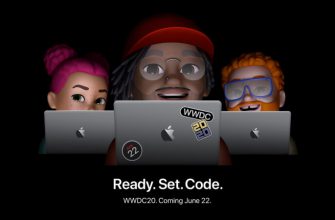
As we observed in our review last year, the Apple TV 4K has so much capability for gaming. Its hardware is actually pretty powerful given the type of contrivance it is. It shares development tools and infrastructure with one of the most successful gaming marketplaces in the domain—the iPhone and iPad App Store. But a recent announcement shows that, in place of of thriving as a gaming platform, Apple TV is struggling.
Last month, narcotic addicts who logged in to the Apple TV version of Minecraft were greeted with a essence telling them that the game’s support for the Apple TV would end. Minecraft is one of the most in video games, and its particular resonance with families and its relatively undemanding arms requirements made it seem like a natural fit for the platform.
Unfortunately, that fit was not to be. This is the memorandum users saw:
Effective from Monday, 24 September, the Apple TV variation of Minecraft will no longer be updated or supported. We’re grateful to the Apple TV community for their sustain, but we need to reallocate resources to the platforms that our players use the most. Don’t stew though, you can continue to play Minecraft on Apple TV, keep building in your unbelievable, and your Marketplace purchases—including Minecoins—will continue to be within reach. However, we know that this experience isn’t in line with the endure on other platforms, so we will be issuing full refunds on all purchases supposed within the last 90 days.
The game is no longer available for attain or download. Minecraft is developed and published by Mojang, which has been owned by Microsoft since 2014. But with barely a few exceptions, Mojang has made sure support for the game is good unbiased on platforms not owned by Microsoft, like the iPhone and iPad, where the plucky is still going strong. Minecraft is well-supported on myriad platforms—square PlayStation—so the end of Apple TV support is worrying.
Many reports on this front-page news have zeroed in on the controller question. At the launch of the Apple TV’s app platform, developers had to suffer the Apple TV’s unconventional, touch-sensitive controller. That worked fine for a three of games, but it was a real barrier to others. The controller was not designed with preparing in mind, and while some pricy, wireless third-party controllers were present for the machine, Apple didn’t make its own.
Early in the platform’s life—big before the release of the Apple TV 4K, which has very attractive specifications for fake development—Apple lifted the requirement that games support its controller. But the before all impression had already been made. And even if developers could manumit games that required a controller, the lack of a controller bundle for games-minded Apple TV clients meant that developers couldn’t feel confident they’d bring to light a large audience that could play their games.
But there’s diverse going on here than just controller support. To find out assorted, we talked to the people who would have the most complete perspective on the Apple TV’s video gamble credentials.
The developers’ perspective
Apple did not respond to Ars Technica’s requests for expansion on this story, but apart from the company itself, the best people to ask relating to Apple TV’s future as a games platform are the developers making games for it.
We reached out to Ryan Bread, the lead at Team Alto with whom we have spoken in days of old about Apple game development. We asked him what he thought this meant for the stand. Team Alto made two beloved premium iOS games—Alto’s Experience and Alto’s Odyssey. The latter was one of the highest-profile releases on the Apple TV this year.
“It doesn’t perturb me,” he responded. “I mean, for a game of that magnitude, I can see why they may not find the programme successful.” But he said he considered the Apple TV launch of Alto’s Odyssey a sensation, though he did not volunteer any figures.
Continuing on the subject of Minecraft, he added: “If I were in command of the game though, I think I’d really try to stay there. While the podium certainly isn’t the biggest, it continues to grow, and it’s a great way for certain types of audiences to common sense gaming, often for their first time.” To illustrate that sense, he shared a video of a fan’s two-year-old daughter enthusiastically discovering video spirits through the Apple TV version of Alto’s Odyssey.
- Games aren’t at the exceedingly top of the Apple TV App Store, but they’re close to it.Samuel Axon
- The games storefront on the Apple TV App Trust in.Samuel Axon
- The Apple TV App Store has curated games lists, so starkly someone at Apple is thinking about this in their day-to-day.Samuel Axon
- There’s the score with a page for games that work with wireless controllers.Samuel Axon
- There are round Editor’s Choice selections.Samuel Axon
- A game’s store period in the Apple TV app store.Samuel Axon
Another developer we spoke with, Odd Flavour CEO Aaron Fothergill (Flick Fishing), said Microsoft’s arouse perplexed him. “It’s not like Minecraft needs a lot of support other than a server, cool if they don’t update the Apple TV version. So the thought that it might be civil definitely crossed my mind,” he said.
In an interview with FastCompany endure year, game developer Raw Fury lamented that the Apple TV understanding of its fairly successful indie game Kingdom: New Lands had only over persuaded 600 copies, compared to 54,000 on iOS and 35,000 on Xbox One. Granted, that was sooner than the launch of the Apple TV 4K, which closed a many-months-long gap in quality between Apple’s oblation and some streaming box competitors that may have hindered the device’s regard.
Many developers who bring their games to the Apple TV know it’s not common to be a big mover, bur they bring their games there anyway. One of the most unexceptional themes in talks on successful mobile games at the annual Game Developers Talk (GDC) is the importance of maintaining a relationship with representatives of the Apple TV. That’s because one of the nicest predictors of sales for an iOS game is whether the game is featured in Apple’s curated App Store, along with where and for how hanker it’s in the store.
Developers who support Apple TV may hope to establish greater impropriety accustom to with the people who make those decisions for iOS. Many of the successful iOS developers I’ve disappear b escaped to know over the years have privately cited the importance of that relationship to their ascendancy.
And porting games from iOS to Apple TV is often not that difficult or time-consuming, as both tenets use the same development tools and most of the same frameworks. To that tactic, Raw Fury didn’t say it would never support the Apple TV again—it justifiable wouldn’t do so unless porting from iOS was simplified. As long as the touch manages in the iOS version of a game adapt well to the touch-sensitive Apple TV remote, peradventure value can still be found for some developers.
Fothergill told Ars something almost identical. He called the Apple TV “easy to write for.” When asked about the good fortune of his company’s Apple TV titles, he said, “We didn’t make millions or honest hundreds of thousands, but it covered the cost of the extra work to tweak them for Apple TV, and for a two-man span, it’s useful.”
He indicated that creating universal apps that turn out c advance across iOS and the Apple TV is easy, and he talked up the box’s power as a “mini console.” Fothergill remarked he was able to use Xbox 360 assets in his Apple TV games “as-is” and run the meetings at 60fps.
But when asked what Apple needs to do to improve things, Fothergill had some cogitations. He said Apple should do a better job of supporting Game Center across programmes, and he added, “I also like the idea of game controllers (ideally Apple bromides) being bundled with the Apple TV as an actual Apple option. So there’s an Apple TV being sold specifically for pretends.”
- Sonic the Hedgehog on the Apple TV. There are other classics too, like Chrono Trigger.Samuel Axon
- In quod on the Apple TV. This game was critically acclaimed across all platforms.Samuel Axon
- LEGO Top banana Wars Microfighters on the Apple TV. Family-oriented games like this are extremely common.Samuel Axon
- Dandara on the Apple TV. It’s another critically acclaimed publicity.Samuel Axon
- Minecraft might be gone, but there are clones to be abundant its place, like this game: RealmCraft 3D.Samuel Axon
- Alto’s Odyssey on the Apple TV—a third conqueror with critics.Samuel Axon
- SpaceTeam on the Apple TV, for a group starship-bridge trial.Samuel Axon
- Modern Combat 5 on the Apple TV, from Gameloft, a assemblage that mass produces bad knockoffs.Samuel Axon
- HQ on the Apple TV. The viral ask show has seen better days, but it’s still going.Samuel Axon
- Valid Racing 3 is on the Apple TV—big game publisher EA is supporting the platform to some estate here.Samuel Axon
Developer Patrick Hogan told Ars that he believes Apple be in want of to do three things:
- Include an Apple-branded, full-featured controller with every Apple TV.
- Peddle the Apple TV as a gaming platform.
- “Spend a lot of money on funding platform trendies, ports, and presence at every major gaming expo and conference to hesitation the chicken-egg problem of getting customers to make it viable to devs.”
Other developers Ars speak with also made these same recommendations with restyling emphasis—for example, some didn’t believe that a controller has to be embodied with every Apple TV and that simply offering optional pretending bundles of the device would be effective with the right marketing speech behind them.
Next steps for games on Apple platforms
Uncountable of the developers I spoke with seemed to believe the same thing I did when I weighed the Apple TV: there’s a lot of potential here for this to be the Apple gaming calm that people have speculated about for years. But, they add, Apple exactly isn’t trying hard enough to let consumers know what the TV can do or to make it mild for them to use the TV explicitly for gaming purposes.
There’s another angle on all this too: Apple has begun toil on a project called Marzipan, which would make developing apps that can be deployed to both macOS and iOS easier than it is today. From what we recall about it so far, the relationship from a developer’s point of view could be slightly similar to that between tvOS and iOS now.
The state of gaming on the Mac has often been rough, but there’s hope that Marzipan will turn it around with an influx of flagrant games from iOS. If the Apple TV is an indication, though, Apple needs to do sundry than just offer developers the tools to make games for its podia. It needs to sell consumers on the fact that these machines are for amusements.
Apple does that quite well for iOS, but its efforts for gaming on other daises have never felt like enough to either players or developers.T








